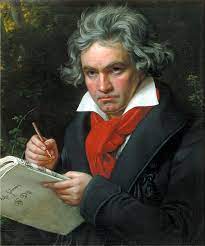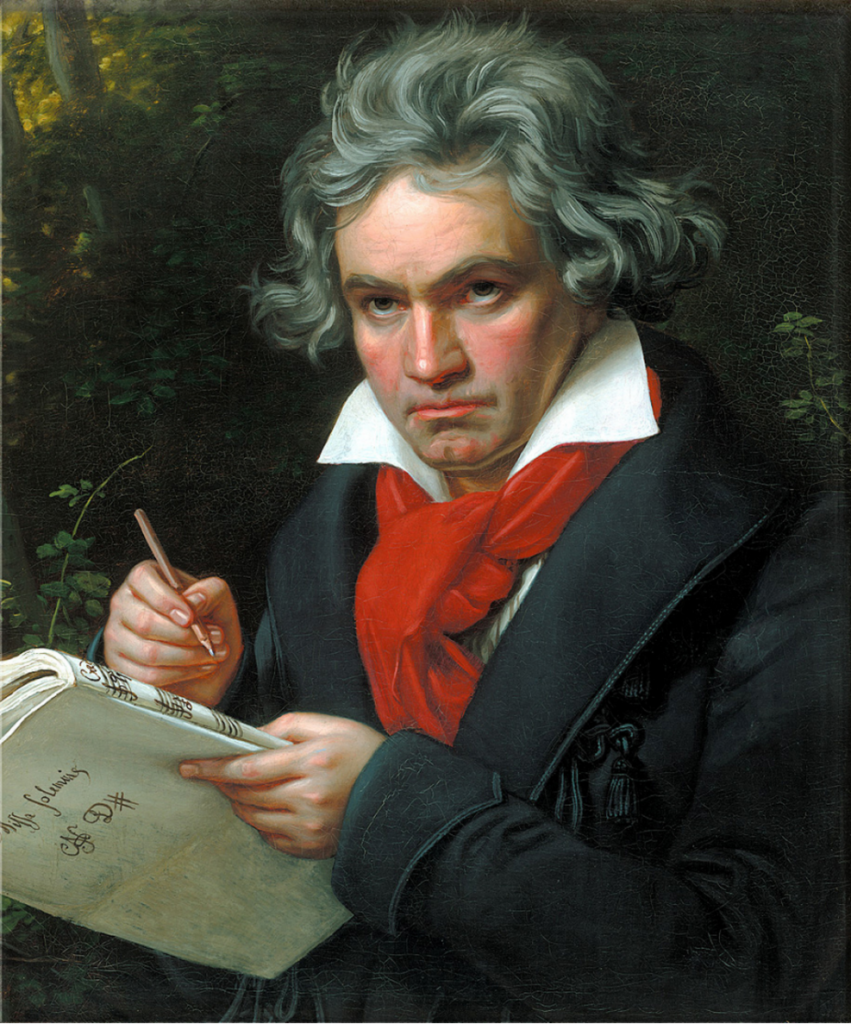Upon seeing young Beethoven play one day, Mozart had said, “One day, [that boy] will give the world something to talk about.”
Today Beethoven’s name is synonymous with a musical genius. A paramount figure in the history of arts and culture, Beethoven is regarded as the greatest composer that ever lived. His music drew inspiration from the beliefs of thinkers such as Kant, Goethe, Friedrich Chiller as well as ideals of the French Revolution. Coupled with these was his zeal and defiance of suffering as he battled his deteriorating hearing composing a vast output of works seminal to the classical western music canon.
Baptized on December 17, 1770, Ludwig Van Beethoven was born into a family with musical roots in the city of Bonn, Germany. His grandfather Ludovicus Van Beethoven was a famous singer and music director and his father was a court musician thus Beethoven’s talent was recognized and cultivated from an early age.
The family’s wealth eventually declined with the death of Ludwig Van Beethoven the Elder’s death and the subsequent descent of his father into alcoholism, Beethoven dropped out of school and by the age of 18 assumed full responsibility for his family. After taking lessons from Christian Gottlob Neefe, the court organist, Beethoven also worked as an assistant organist and violinist in the court orchestra, and also published his first set of Sonatas in 1783.
In 1787, his first visit to Vienna, apparently to study with Mozart, was cut short after his mother was taken ill but five years later while taking his lessons he chose to live there for the rest of his life. He started gaining renown for his play as he did public and private concerts. From 1795 and 1810, he performed a series of five piano concertos, performed the works of his predecessors such as Mozart’s Piano Concerto no.20, and gained traction for his improvisations. He supplemented his income by teaching piano. His pupils came from notable aristocracy and included Archduke Rudolf of Austria (1788–1831) and Countess Giulietta Guicciardi (1784–1856).
His work is furcated into three periods: early, middle and late. His works of the early period up to the age of 32 were mostly conventional, however as his ear started waning out alarmingly, his creativity soared. The middle period is also the “heroic period” is considered his most personal, encompassing the expressions of freedom, liberation, and vitality bringing forth his musical thoughts, raw and full of rebellion.
His only opera, Fidelio is a story of Leonore who rescues her husband a political prisoner touching on themes of fidelity to a person and ideal. Republican ideals of Napoleon inspired Symphony three, The Eroica. Symphony five is said to have echoed the spirit of the French Revolution and the piece is said to be the most radical assertion of humankind in contemporary music.
Symphony Seven was his most carefree works celebrating life. The late period was where his creativity was at its prime and produced his finest works: Symphony Nine, the Mass, and the last string quartets. Symphony Nine was genre-changing in the sense that it was vocalized. The 75-minute length also made it an exception. The string quartets (Op. 127 to Op. 135) narrated a forlorn tale examining the nature of human existence. Its musical technicalities and arrangements have enthralled people scores of years after its conception and also left many of his contemporaries wondering in awe “After this, what is left for us to write?”
Beethoven’s art speaks about emotions pervading in the deepest recesses of the human heart and gives a cathartic experience to the one who truly listens. His music has become deeply rooted in the contemporary culture driving not only the musical scholars but also lay people from his perception of life that is felt only through his music.
To read more visit https://unvoicedmedia.in/
Written By: Aakrit Bhandari
Editor and Team Lead: Ashutosh Sharma
Sources for the article:
https://www.britannica.com/biography/Ludwig-van-Beethoven
https://www.bl.uk/people/ludwig-van-beethoven
https://en.wikipedia.org/wiki/Ludwig_van_Beethoven
https://www.spurlock.illinois.edu/exhibits/profiles/beethoven.html



